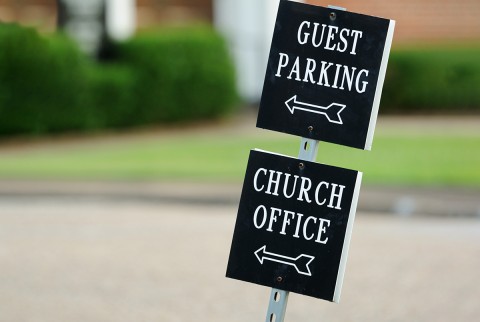The surprising freedom of being a guest preacher
I might or might not be invited back. Either way, there’s no lasting harm.

When I left parish ministry 20 years earlier than expected, my preaching life was born again. This came as a surprise, since there was general agreement among my clergy friends that guest preaching was a lame gig. It was something people with no congregation did, filling in on a random Sunday for a preacher who was ill or away on vacation, or serving as a placeholder while a search committee did its job. It meant working hard on a sermon for people you didn't know but who knew each other well, which explained why it was so easy to make their eyebrows fly up when you said something that did not meet code or pressed a bruise you did not know was there. Guest preaching was for people who didn’t have a real preaching job.
Some of this was true. Once, when a charming clergy friend decided it would be fun for me to preach at his church while an assistant minister covered for me at mine, I failed to ask several important questions. Did he stand behind the pulpit when he preached, or did he walk around? Did he use a manuscript when he spoke, or did he look straight into people’s eyes? How long were his sermons, usually? But even if I had remembered to ask, his answers would not have helped. Afterward, as I stood shaking hands at the door, a small woman with bright eyes and tan cheeks said, with genuine pity, “I’m sorry. It’s just that we love Sam.”
I tucked that wisdom away and pulled it out years later when I was always and only a guest. Always ask questions. Remember they love their pastor. Don’t pretend to be something you’re not. By then my real job was teaching college, which freed up my weekends for the first time in decades. Invitations came and I accepted them, learning to preach in a whole new way.




